*** Proof of Product ***
Exploring the Essential Features of “Rebecca Sachs – Strengths-Based and Neurodiversity Affirming Approach to Autism Assessment: A Practitioner’s Guide”
Speaker: Rebecca Sachs, PhD, ABPP
Duration: 1 Hour 46 Minutes
Format: Audio and Video
Copyright: Feb 14, 2024
Media Type: Digital Seminar
Description
Have you ever worked with a client and noticed that treatment wasn’t progressing as expected? Or perhaps you noticed a concern related to typical development or an unexplained struggle, and you thought Autism, but didn’t know what to do next?
Join Rebecca Sachs, PhD, ABPP, and learn how to skillfully use specific screening and assessment-based tools and strategies for:
- When Autism is hypothesized, and you feel stuck
- Understanding unmet needs, delayed skills, and information processing differences that may be impacting treatment
- Confidently communicating Autism related considerations to clients, family, and other professionals
- Making effective and appropriate referrals
- Using assessment as a therapeutic process
By incorporating this knowledge and using the clinical skills that you already have, you will be able to support your client’s underdeveloped areas and unmet needs, as well as harness their strengths and passions!
Speaker
Rebecca Sachs, PhD, ABPP, is a clinical psychologist specializing in the assessment and treatment of individuals on the Autism spectrum who also experience difficult co-occurring disorders, such as obsessive-compulsive disorder (OCD) and severe anxiety. She works with individuals across the life span and believes in empowering individuals and their families with knowledge and skills. Board certified in behavioral and cognitive psychology, Dr. Sachs was recently awarded a federally funded grant through the New York State Office of Mental Health, aimed at helping train community-based service providers better serve children and youth who are dually diagnosed with mental illness, like OCD, and a developmental disability. She has a private practice in New York and is co-director of Successful School Transitions, a comprehensive program for school refusal. Dr. Sachs received her bachelor’s degree, and PhD from New York University and Hofstra University, respectively, and completed a postdoctoral fellowship at the University of Miami. In addition to these roles, Dr. Sachs is mom to an energetic and determined 6-year-old and stepmom to the coolest 15-year-old around.
Speaker Disclosures:
Financial: Dr. Rebecca Sachs is the co-founder of Successful School Transitions and maintains a private practice. She has employment relationships with the International OCD Foundation and the LIU Post. Dr. Sachs receives a speaking honorarium and recording royalties from PESI, Inc. She has no relevant financial relationships with ineligible organizations.
Non-financial: Dr. Rebecca Sachs is a member of the Anxiety and Depression Association of America, the Asperger Syndrome and High Functioning Autism Associations, the Association for Behavioral and Cognitive Therapies, and the New York State Psychological Association.
Objectives
- Utilize functional assessments to screen for Autism.
- Identify the function of challenging behaviors.
- Determine what type of referral is appropriate for Autism evaluation or services.
Outline
Assessment and Screening Through a Neurodiversity Lens
- Why Assessment is important
- Understanding language (autism, support needs, Autistic developmental trajectory)
- Age of receiving diagnosis and acceptance
- Cost of masking & social camouflage
- Benefits of community and a sense of belonging
- What is neurodiversity, ablism and disability
- Profile and information processing differences
- Identifying strengths and passions
- Needed supports to promote independence & valued living
- Types of Assessment
Behaviors that Challenge Assessment
- Diagnosis isn’t the main issue
- How to encourage more helpful behaviors, regardless of diagnoses and environment
- Current behavior is important to address
- Once function of behavior is identified, what next?
- Assessing mismatch between expectations and skills needed to meet that demand.
- Case Example
When Screening Shows Autism… Now What?
- Screenings Everyone can use
- Types of referrals to make and why they are so important
- Psychoeducation resources
- Understanding elements of an appropriate evaluation
Discussing of Autism with Clients (and their Families)
- Earlier diagnosis -> earlier intervention -> better trajectory
- Educational identification vs medical diagnoses
- Thinking beyond the medical model
- System challenges: Time to get to a proper evaluation
- Racial and economic disparities: Social justice and equity lens
- Gender differences and LCBTQA+ diversities
- Help clients and caregivers process acceptance and address ambivalence
- Discomfort/ambivalence in relaying diagnosis
Assessment as a Therapeutic Process
- Why assessment can be therapeutic
- Goals and elements of a neurodivergent affirming assessment
Risk and Limitations
Target Audience
- Licensed Clinical/Mental Health Counselors
- Marriage & Family Therapists
- Psychologists
- Social Workers
- Speech-Language Pathologists
- Occupational Therapists
- Physical Therapists
- School Administrators
- Teachers/School-Based Personnel
- Occupational Therapy Assistants
- Physical Therapist Assistants
- Addiction Professionals
Please see the full list of alternative group-buy courses available here: https://lunacourse.com/shop/

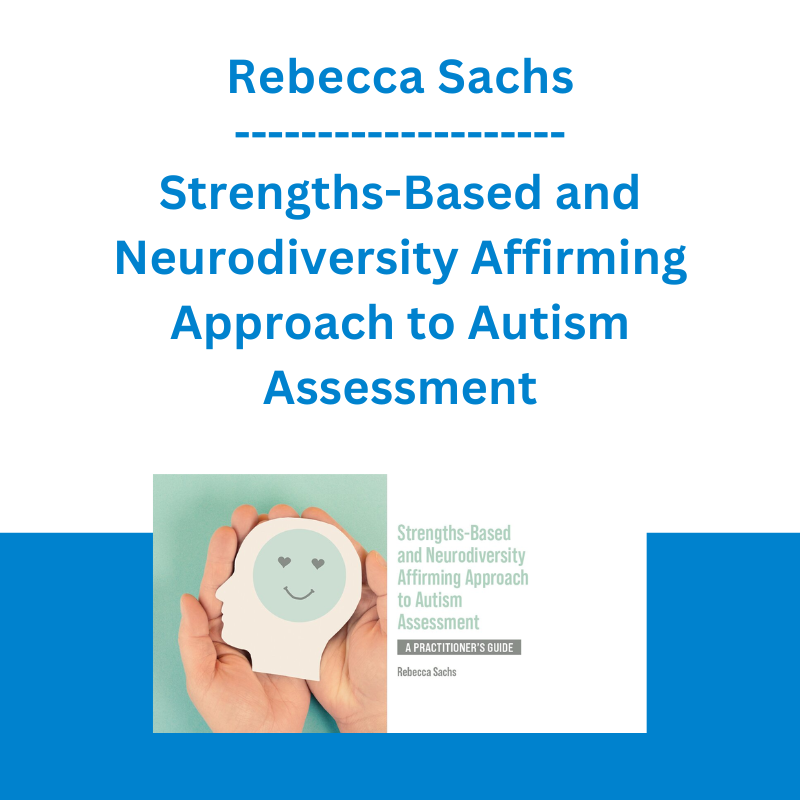








 Media Buying ADS Masterclass - Mr Paid Ads
Media Buying ADS Masterclass - Mr Paid Ads 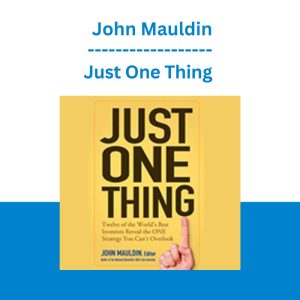 Just One Thing - John Mauldin
Just One Thing - John Mauldin  Henrique Barone - Classical Animation Workflow & Techniques
Henrique Barone - Classical Animation Workflow & Techniques  Deborah King - Spirit Guidance & Sacred Sutras - The Shift Network
Deborah King - Spirit Guidance & Sacred Sutras - The Shift Network 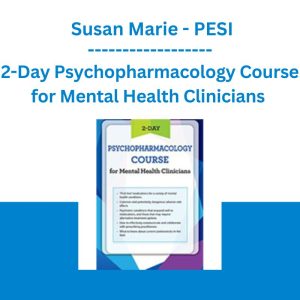 2-Day Psychopharmacology Course for Mental Health Clinicians - Susan Marie - PESI
2-Day Psychopharmacology Course for Mental Health Clinicians - Susan Marie - PESI  Stan Campbell - The Art of De-Escalation
Stan Campbell - The Art of De-Escalation  RSD Valentino- Hello To Never Leave Me – Invisible Game Decoded Full Manifesto
RSD Valentino- Hello To Never Leave Me – Invisible Game Decoded Full Manifesto 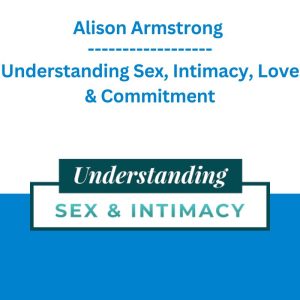 Alison Armstrong - Understanding Sex, Intimacy, Love & Commitment
Alison Armstrong - Understanding Sex, Intimacy, Love & Commitment  Gary Knight - Confronting Choice in Your Photojournalism Career
Gary Knight - Confronting Choice in Your Photojournalism Career  David Hans-Barker - Spiritual Hustlers Club
David Hans-Barker - Spiritual Hustlers Club  Chris Bale - Simplistic Seduction Video Course
Chris Bale - Simplistic Seduction Video Course 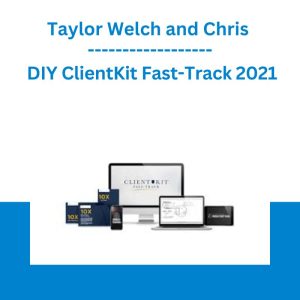 Taylor Welch and Chris - DIY ClientKit Fast-Track 2021
Taylor Welch and Chris - DIY ClientKit Fast-Track 2021  Nancy Cartwright - Teaches Voice Acting -MasterClass
Nancy Cartwright - Teaches Voice Acting -MasterClass  No Investment Guide: How to Get More Customers for Your PPC Agency
No Investment Guide: How to Get More Customers for Your PPC Agency  Team NFT Money - Ultimate NFT Playbook
Team NFT Money - Ultimate NFT Playbook 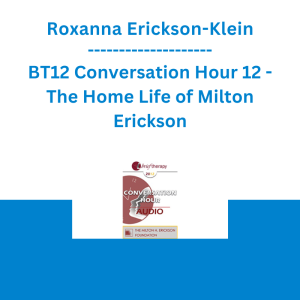 Roxanna Erickson-Klein - BT12 Conversation Hour 12 - The Home Life of Milton Erickson
Roxanna Erickson-Klein - BT12 Conversation Hour 12 - The Home Life of Milton Erickson  Jim Cockrum - Selling On Amazon Mentorship Series
Jim Cockrum - Selling On Amazon Mentorship Series  Alex Gould - CPA Wealth Academy Full Access
Alex Gould - CPA Wealth Academy Full Access 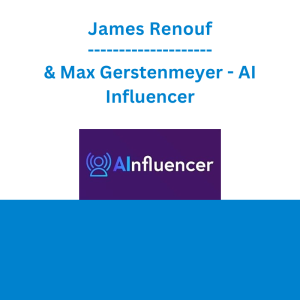 James Renouf & Max Gerstenmeyer - AI Influencer
James Renouf & Max Gerstenmeyer - AI Influencer  Candlecharts - Candlesticks MegaPackage Vol 1-4 (CCA)
Candlecharts - Candlesticks MegaPackage Vol 1-4 (CCA)  Influencer Video Secrets - Michelle Cunningham
Influencer Video Secrets - Michelle Cunningham  Matthew Kratter - Trader University
Matthew Kratter - Trader University  Greg Loehr - Advanced Option Trading With Broken Wing Butterflies
Greg Loehr - Advanced Option Trading With Broken Wing Butterflies  Oliver Velez - Essential Strategy Of Trade For Life
Oliver Velez - Essential Strategy Of Trade For Life 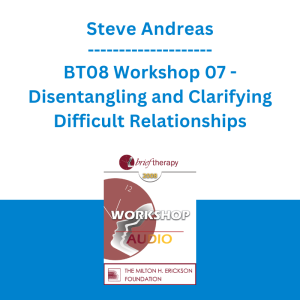 Steve Andreas - BT08 Workshop 07 - Disentangling and Clarifying Difficult Relationships
Steve Andreas - BT08 Workshop 07 - Disentangling and Clarifying Difficult Relationships  Ron Louis & David Copeland - How to Talk to Women
Ron Louis & David Copeland - How to Talk to Women 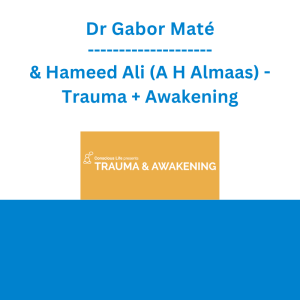 Dr Gabor Maté & Hameed Ali (A H Almaas) - Trauma + Awakening
Dr Gabor Maté & Hameed Ali (A H Almaas) - Trauma + Awakening  How to Build Strong Relationships at Work - Daniel Post Senning
How to Build Strong Relationships at Work - Daniel Post Senning  Dave Landry - Stock Selection Course
Dave Landry - Stock Selection Course  Forexmentor - Recurring Forex Patterns
Forexmentor - Recurring Forex Patterns 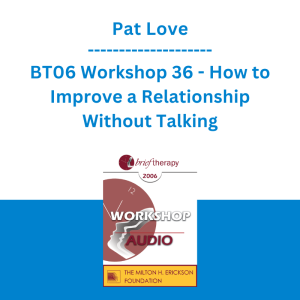 Pat Love - BT06 Workshop 36 - How to Improve a Relationship Without Talking
Pat Love - BT06 Workshop 36 - How to Improve a Relationship Without Talking 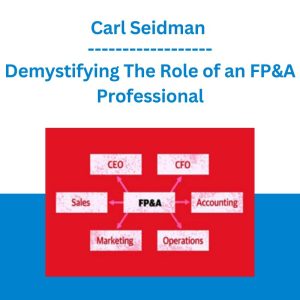 Carl Seidman - Demystifying The Role of an FP&A Professional
Carl Seidman - Demystifying The Role of an FP&A Professional  Charles Jayne - The Best of Charles Jayne
Charles Jayne - The Best of Charles Jayne 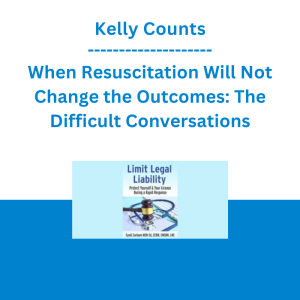 Kelly Counts - When Resuscitation Will Not Change the Outcomes: The Difficult Conversations
Kelly Counts - When Resuscitation Will Not Change the Outcomes: The Difficult Conversations  LJ Johnson - Beyond Certification: The Ultimate Travel Agent Education
LJ Johnson - Beyond Certification: The Ultimate Travel Agent Education  Atlas API Training - API 570 Exam Prep Training Course
Atlas API Training - API 570 Exam Prep Training Course  CPA Ads Academy & Mc Declan’s Bonuses - Brian Gonzalez, Stefan Ciancio & Timothy Miranda
CPA Ads Academy & Mc Declan’s Bonuses - Brian Gonzalez, Stefan Ciancio & Timothy Miranda  George Fontanills & Tom Gentile - Optionetics Wealth Without Worry Course
George Fontanills & Tom Gentile - Optionetics Wealth Without Worry Course 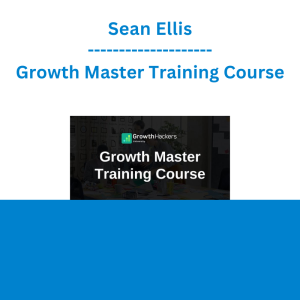 Sean Ellis - Growth Master Training Course
Sean Ellis - Growth Master Training Course  Raquel Spencer - Awakening the Multiverse Emerald Crystalline Energies
Raquel Spencer - Awakening the Multiverse Emerald Crystalline Energies  George Fontanills & Tom Gentile - Optionetics 6 DVD Series Home Study Course (Digital Download)
George Fontanills & Tom Gentile - Optionetics 6 DVD Series Home Study Course (Digital Download) 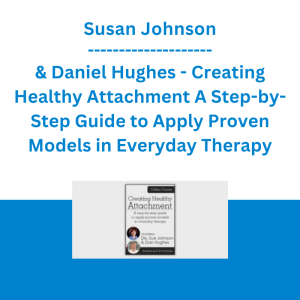 Susan Johnson & Daniel Hughes - Creating Healthy Attachment A Step-by-Step Guide to Apply Proven Models in Everyday Therapy
Susan Johnson & Daniel Hughes - Creating Healthy Attachment A Step-by-Step Guide to Apply Proven Models in Everyday Therapy  Arnold Haultain - Hints for Lovers
Arnold Haultain - Hints for Lovers  Paul Janka - Seduction Materials Collection ( DeluxeBundle)
Paul Janka - Seduction Materials Collection ( DeluxeBundle) 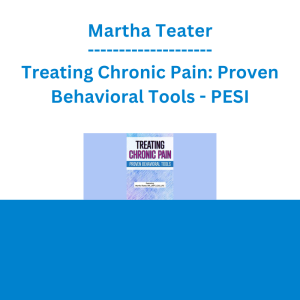 Martha Teater - Treating Chronic Pain: Proven Behavioral Tools - PESI
Martha Teater - Treating Chronic Pain: Proven Behavioral Tools - PESI  Steven Capobianco & Mitch Hauschildt - RockTape Functional Movement Techniques Certification: Kinesiology Taping Interventions & More
Steven Capobianco & Mitch Hauschildt - RockTape Functional Movement Techniques Certification: Kinesiology Taping Interventions & More  Bruno Bettelheim, Albert Ellis, Ronald Laing & Judd Marmor - EP85 Panel 16 - Sexuality
Bruno Bettelheim, Albert Ellis, Ronald Laing & Judd Marmor - EP85 Panel 16 - Sexuality  Jared Platt - The Ultimate Lightroom Classic CC Workflow
Jared Platt - The Ultimate Lightroom Classic CC Workflow  Matan Feldman - The 13-Week Cash Flow Modeling - Wall Street Prep
Matan Feldman - The 13-Week Cash Flow Modeling - Wall Street Prep  Jesse Livermore Trading System - Joe Marwood
Jesse Livermore Trading System - Joe Marwood  Duston McGroarty - 1st Page Academy
Duston McGroarty - 1st Page Academy  Albert Dros - Full Editing Course on Landscape Photography
Albert Dros - Full Editing Course on Landscape Photography  Crypto Dan - The Crypto Investing Blueprint To Financial Freedom By 2025
Crypto Dan - The Crypto Investing Blueprint To Financial Freedom By 2025 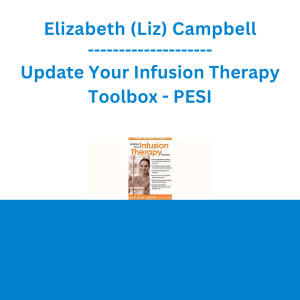 Elizabeth (Liz) Campbell - Update Your Infusion Therapy Toolbox - PESI
Elizabeth (Liz) Campbell - Update Your Infusion Therapy Toolbox - PESI  Merideth Norris, Kinna Thakarar, Michael Wardrop - 2020 Maine Opioid Crisis Bundle
Merideth Norris, Kinna Thakarar, Michael Wardrop - 2020 Maine Opioid Crisis Bundle  Ron LeGrand - Wholesale Retail Bootcamp
Ron LeGrand - Wholesale Retail Bootcamp 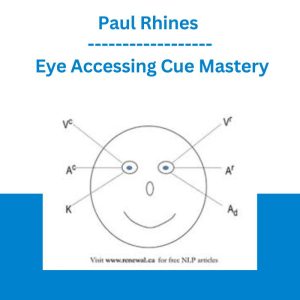 Paul Rhines - Eye Accessing Cue Mastery
Paul Rhines - Eye Accessing Cue Mastery  Taoist Breathing 2022 Summer Retreat (Two Weeks) - Bruce Frantzis
Taoist Breathing 2022 Summer Retreat (Two Weeks) - Bruce Frantzis  SMB - Options Training
SMB - Options Training  Code Star Academy, Oracle Master Training - SQL for Beginners: The Easiest Way to Learn SQL Step by Step
Code Star Academy, Oracle Master Training - SQL for Beginners: The Easiest Way to Learn SQL Step by Step  The Thyroid Body Type Course - Eric Berg
The Thyroid Body Type Course - Eric Berg 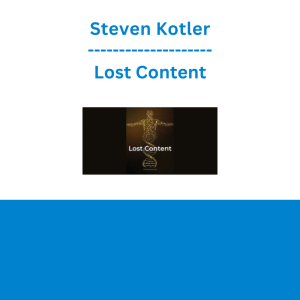 Steven Kotler - Lost Content
Steven Kotler - Lost Content  Adam Armstrong - 37 Secrets About Women And Sex
Adam Armstrong - 37 Secrets About Women And Sex 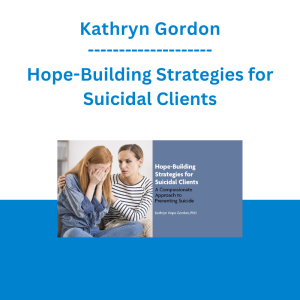 Kathryn Gordon - Hope-Building Strategies for Suicidal Clients
Kathryn Gordon - Hope-Building Strategies for Suicidal Clients 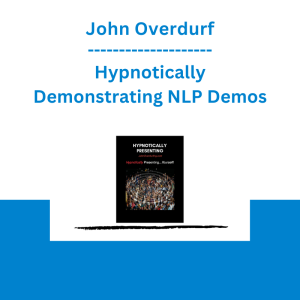 John Overdurf - Hypnotically Demonstrating NLP Demos
John Overdurf - Hypnotically Demonstrating NLP Demos 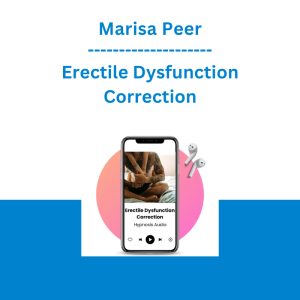 Marisa Peer - Erectile Dysfunction Correction
Marisa Peer - Erectile Dysfunction Correction 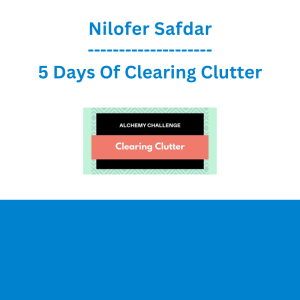 Nilofer Safdar - 5 Days Of Clearing Clutter
Nilofer Safdar - 5 Days Of Clearing Clutter  Michael Golzmane - Clear Blocks to Enlightenment, Upgrade your Lightbodies and Levels of Consciousness, and Clear the Soul's Need to Keep Incarnating (Guru Purnima 2021)
Michael Golzmane - Clear Blocks to Enlightenment, Upgrade your Lightbodies and Levels of Consciousness, and Clear the Soul's Need to Keep Incarnating (Guru Purnima 2021) 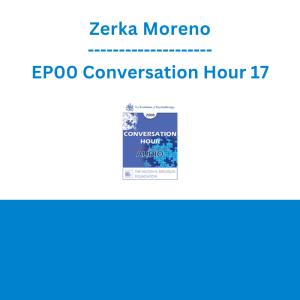 Zerka Moreno - EP00 Conversation Hour 17
Zerka Moreno - EP00 Conversation Hour 17